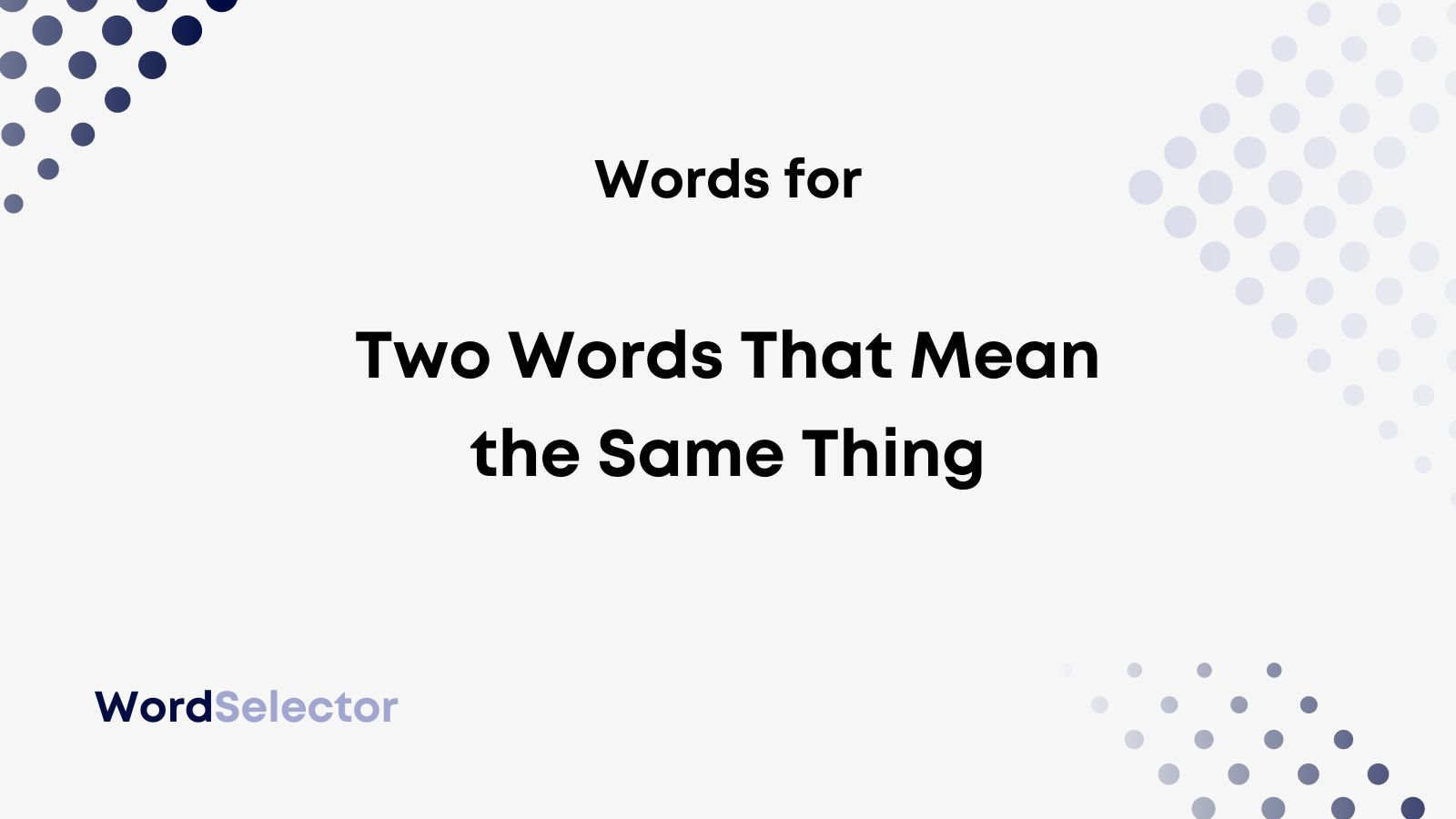From time to time, even the most proficient linguists will repeat the same idea using different words in their speech or writing.
But what is it called when we use two words that mean the same thing?
The following article will address this question, so read on!
Words for Two Words That Mean the Same Thing
- Tautology
- Redundant
- Synonyms
- Pleonasm
- Interchangeable
- Superfluous
KEY TAKEAWAYS
- When you use two words or phrases that mean the same thing in a way that is unnecessary and unhelpful to your point, this is an example of “tautology.”
- Using two words that mean the same thing in a single sentence will make your sentence “redundant.”
- The term for two words that mean the same thing is “synonyms.”
Stick around! In the next section, we’ll discuss in detail our top three terms for when someone uses two words that mean the same thing.
Furthermore, we’ll provide some helpful examples below.
Tautology
When you use two words that mean the same thing in a sentence, this is an example of tautology.
This is particularly the case when you are doing this unintentionally and making your sentence sound a tad absurd as a result.
After all, the Cambridge Dictionary defines “tautology” as “the use of two words or phrases that express the same meaning, in a way that is unnecessary and usually unintentional.”
Many English teachers squirm when they see their pupils engaging in “tautology,” as this serves to make your writing more clumsy.
However, the best way to understand what “tautology” is, is to see a few examples of it:
I walked towards the dilapidated ruins that were once my family’s house.
In the example above, “dilapidated” and “ruins” means precisely the same thing. Therefore, it’s a bit silly to use both of these phrases in the same sentence!
Let’s see another example:
I have decided to write an autobiography about my life.
Merriam-Webster defines an “autobiography” as “a usually written account of a person’s life in their own words.”
Therefore, it’s absurd for the speaker in the example above to say that they are writing an autobiography about their life, as the word “autobiography” speaks for itself!
Finally, let’s look at how you can use the term “tautology” in a sentence or two:
This is an example of tautology, and you should try to avoid it in your academic writing.
It would be a better book if not for all the vacuous tautology.
Redundant
The Cambridge Dictionary defines “redundant” as “(especially of a word, phrase, etc.) unnecessary because it is more than is needed.”
Therefore, it is “redundant” to use two words or phrases to say something when just one would do.
After all, when two different words mean the same thing, it’s best to pick one to make your writing more succinct.
The word “redundant” stems from the Latin word “redundare,” which literally means to “overflow” or to be too full.
In short, redundancy occurs when you could have gotten the same point across using fewer words.
Once again, it’s best to illustrate what redundancy looks like using some examples:
It was an unintentional mistake.
What an unexpected surprise!
Obviously, when you make a mistake, you are acting unintentionally. Therefore, it is redundant to include “unintentional” in the first sentence.
Likewise, a “surprise,” by its very nature, is unexpected. Therefore, it’s redundant to add “unexpected” before this word.
Finally, let’s see the word “redundant” itself in some example sentences:
At the risk of sounding redundant, I have always said we should look to past experience.
Your story is good, but your chapters are filled with redundant details.
Synonyms
If you’re unsure how to describe two words with the same meaning, the most appropriate term is “synonyms.”
According to Merriam-Webster, a “synonym” is “one of two or more words or expressions of the same language that have the same or nearly the same meaning in some or all senses.”
Therefore, when you use two words that mean precisely the same thing, even though they sound different and are spelled differently, you are using “synonyms.”
Let’s see some examples of synonyms to avoid any confusion:
She was very frail and weak when we found her.
There’s no need to be so loud and raucous.
“Frail” and “weak” in the sentence above mean the same thing and are, therefore, “synonyms.” The same goes for the words “loud” and “raucous.”
You will note that using both of these synonyms in the same sentence is also an example of redundancy! After all, it would be more concise to choose just one adjective.

